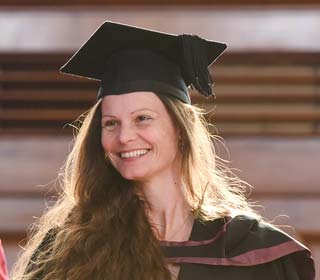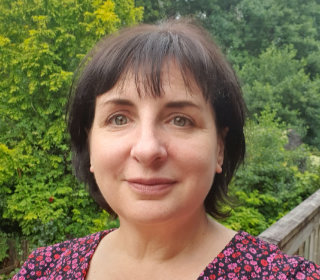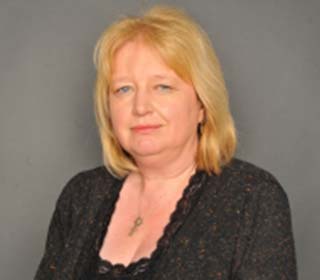Postgraduate Diploma in Early Years with Initial Teacher Training
Gain Early Years Teacher Status. No fees. Become a leading professional in early years settings with this Postgraduate Diploma in Early Years with Initial Teacher Training (EYITT).

Entry requirements
A degree of 2:2 or above
GCSE English, Maths and Science at grade 4 or grade C or above (or an equivalent qualification)
Experience of working with children
We are committed to safeguarding and promoting the welfare of children and trainees. All trainees are expected to share this commitment and demonstrate consistently high standards of personal and professional conduct.
UCAS code Apply to Marjon
UCAS institution code P63
Duration One year full-time or longer part-time options
Course Summary
This Postgraduate Diploma in Early Years with Initial Teacher Training (EYITT) has fully funded places available and leads to Early Years Teacher Status, a qualification which is growing in popularity. People who hold this status are leading professionals in the provision of services for children aged up to five.
Teaching is delivered two days a week for the first 6 weeks, followed by block of teaching on campus in the spring, plus one day a month and online evening tutorials. You then gain practical experience either in your workplace or on campus.
The Early Years Initial Teacher Training (EYITT) programme can follow two routes:
1. If you are already working in an early years setting, this route will work for you. It is also known as the Graduate Entry Employment-based route (part-time). Financial support is usually available to employers to release staff to attend this programme.
2. Designed for graduates in any discipline, this route is ideal for those who’ve decided to change careers, or new graduates with an interest in early years education. The programme is usually fully funded for UK students meaning that you won't pay course fees and small bursaries to support your day-to-day living may be available for eligible candidates. It’s known as the Graduate Entry mainstream route (full-time).
Why this course at Marjon?
Marjon has ten years’ experience of delivering this programme
Our mentors come from across the South West and have all worked in nurseries in the previous five years
Many previous trainees have secured leadership roles in Early Years education settings
Modules for this course
1st Year
The early years setting
Notions of quality in early years practice
Developing early years practice
The early years curriculum
Current students say...
Tonie Hammacott
"I most enjoy being able to put theory into practice and have made lifelong friends from similar professional situations. I've got greater awareness of my strengths and weaknesses and an understanding of how to develop them. I've also developed more confidence to reflect on my practice and in my writing skills."
Josie Hack
"I've made new lifelong friendships and know they will be a source of support and knowledge throughout my Early Years career. I've enjoyed finding my own pedagogy and implementing new ideas for the children that have enhanced my setting. The lectures are insightful and now I find myself questioning the dominant discourse and finding my own narrative. I have enjoyed the challenges of this course and the opportunities it has provided me to expand my knowledge."
Rosanna Hoadley
"This course allows me to develop my practice through working collaboratively with lecturers, placement mentors and like-minded peers. I have enjoyed being able to visit a variety of Early Years settings too. The lecturers have supported me to develop skills of critical and reflective thinking and I've gained confidence in my Early Years practice."
This course is perfect if you’re curious about
Is play the best way of young children learning?
Do children all develop in the same way?
How do young children learn?
How do we record young children’s progress?
How do we judge quality in Early Years?
How does the Early Years Teacher develop and support other staff?
What might you become?
Successful completion of the programme results in the award of Postgraduate Diploma in Early Years with Early Years Teacher Status. Typically, students find employment in Children’s Centres, nursery classes in schools, private and voluntary-funded nurseries or working in Local Authority early years provision.
Working with:

Dept for Education
Marjon is recognised as a teacher training provider by the Dept for Education.
How you’ll be taught and assessed?
How will you be taught?
Takes place through lectures, seminars, workshops, placements and masterclasses.
How will you be assessed?
Through a variety of tasks including essays and placement files.

Hannah is a former SureStart Children's Centre Manager, Nursery Manager and Early Years Professional, assessor and mentor. She is particularly interested in Early Years, Play, Inclusion and Leadership.
Fees and funding
Fees UK students: £0 - This is a fully funded course. You, as the student, usually don't pay any fees and a training grant is available to your employer to meet the costs they incur in supporting your training.
This fee covers your tuition and access to course-specific equipment and facilities, as well associated services including access to the library, study skills support, IT support, student support and wellbeing services and membership of the Student Union. There may be additional costs by course.
Funding available for this course
See the government's funding guidance.
Our Student Funding Advisors offer confidential and impartial advice about your funding options.
Learn moreLecturers

Marie has worked in Early Years and education for the past thirty years, working in various roles from manager to teaching assistant and with individuals who have special education needs.
She is interested in policy, Early Years, active listening and children’s rights.

Jayne is an experienced Early Years Teacher and Pre-School Manager with additional insight into primary education, including school governance. She teaches Child Development and Early Years Initial Teacher Training with a focus on Attachment, Transitions and Children's Emotional Development, as well as Leadership in Early Years.

Jan was previously a primary head teacher in the South West and she now leads a teaching team at Marjon who together draw on decades of classroom experience and wide-ranging research specialisms to deliver Education courses.




